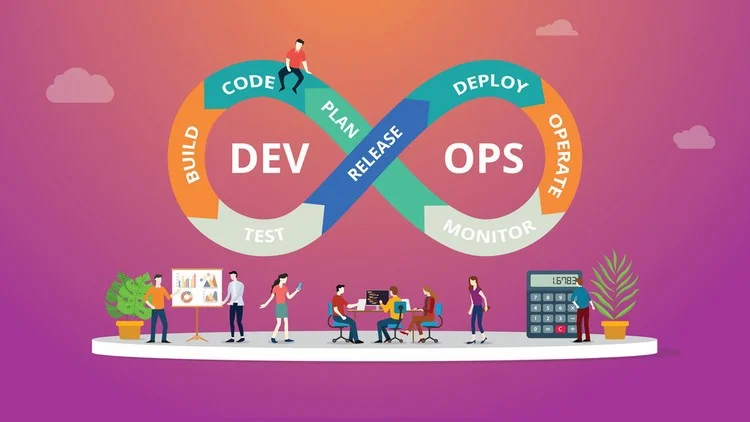In the fast-moving technological world today, businesses have always been on the lookout for better ways of making their operations smoother and delivering quality products quickly. The next thing that has revolutionised the way organisations approach software development and IT operations is actually DevOps.
- What Is DevOps?
DevOps is actually a set of practices integrating software development, also known as Dev, and IT operations, also referred to as Ops, towards a more efficient and collaborative approach to building and maintaining software systems. Skilled in the principles and how to apply them in real-world situations, professionals who attend a DevOps Course can be the backbone of the methodology in any organization. The main philosophy behind this is, therefore, to eliminate traditional silos or walls separating the development teams from the operations teams and become liable for ensuring the responsibility and continuous improvement of their overall responsibilities. This brings about quicker delivery of software, better quality, and ultimately higher customer satisfaction. A rigorous DevOps training program in Bangalore or any other innovation hub would empower participants to apply these practices and methodologies to the organisations they work for effectively.
- Benefits Of DevOps On Operations Management
The most basic benefit that can be achieved from DevOps practices is by making great collaboration between the development team and the operations team. A DevOps course will teach participants to smash the silos, encourage a shared responsibility culture, and solve problems better, as well as deliver them more rapidly. Moreover, DevOps promotes automation and continuous delivery, which in turn will empower organisations with the capabilities of bringing new features or updates to be released frequently. Thus, organisations achieve low time-to-market with their products and services, hence giving businesses competitive advantages amid fast-changing markets. Indeed, introducing testing and quality assurance at every stage of development really helps the enhancement of quality and reliability in software products, timely detection of problems, and finally resolving them in the earlier stages of the development cycle.
- Components Of A DevOps Course
A continuous integration and continuous delivery pipeline is an integral part of any DevOps course. Such practices ensure that code changes are automatically built, tested, and prepared for release to production. Knowledge in CI/CD also ensures the process is streamlined for the delivery of software and that as much time as possible between someone writing the code and when it goes into production is minimized. Infrastructure as Code (IaC) is another key concept covered by courses on DevOps, meaning one can manage and provision infrastructure through code instead of through human processes. Containerisation technologies like Docker and orchestration platforms, including Kubernetes, are also part of the modern forms of DevOps. A good course in DevOps will provide students with hands-on exposure to such technologies.
- Implementing DevOps within an Organisation
The biggest challenge to implementing DevOps would be about organisational change, often required. The DevOps course trains professionals to highlight the need for helping create a collaborative culture of continuous learning and shared responsibilities within organizations. The participants learn how to bypass resistance to change and how to set up an environment that adopts the principles of DevOps. The course also involves the process of choosing tools that are specifically tailored for organisational needs to ensure they are seamed into the processes without much disturbance. It also implies how professionals can define and track KPIs in order to measure the success of initiatives and point out areas for further improvement in operations management.
- Cloud Integration With DevOps
The best part of modern-day DevOps practices is, undoubtedly, cloud integration. Such knowledge is usually taught in detail in a comprehensive DevOps course. Clouds are scalable, flexible, and economical solutions that perfectly match the principles of DevOps. The understanding of cloud services and how they can be integrated into the workflows within DevOps could unleash the full benefits of cloud computing. A DevOps Course in Bangalore or other tech-centric locations often includes practical hands-on experiences on popular cloud platforms, teaching learners how to deploy, manage, and scale applications in a cloud-based environment. Such knowledge further enables the organisations to build more resilient, scalable, and efficient systems and operational management for smooth and efficient management of operations. Cloud-native DevOps best practices also improve resource utilisation and cost optimization. Businesses adapt quickly to the demands and changing market conditions.
Conclusion
In a nutshell, it is a DevOps course, which provides invaluable knowledge for professionals looking to streamline the management of operations in the organisations where they work. This would be a great opportunity for businesses in terms of having faster times to market, improved quality, and enhanced collaboration between different teams. Whether you’re taking up a Bangalore DevOps course or searching for an online one, investment in such an educational DevOps would contribute immensely to organisational efficiency and competitiveness in this fast-changing technological landscape. As more demand for DevOps grows, actually it is the people with those skills who are going to best utilise them to fuel innovation and operational excellence in their space to drive business outcomes and a happy customer.



